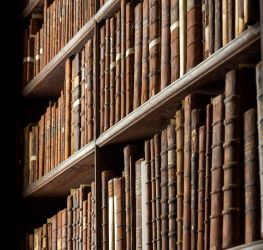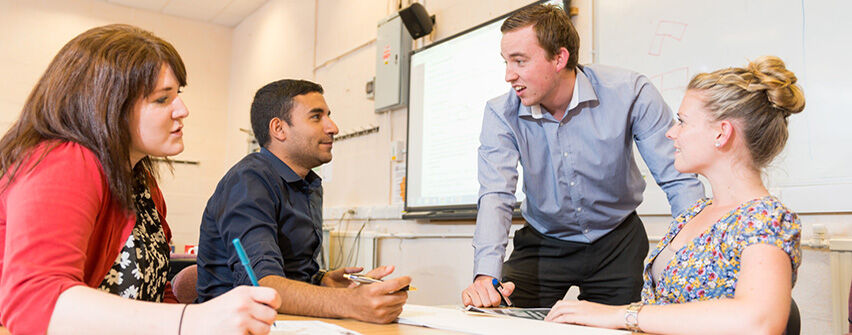The paper is an account of some early reconnaissance work which is now underway regarding the history of Doctoral supervision. and more particularly the struggle to establish supervision as a pedagogical act and epistemological stance in Higher Education.
The literature on the pedagogy and practice of Doctoral supervision is now well established but very little reference is made in the literature to the history of supervision and its pedagogy. There is some approximate literature on the history of the Doctorate itself available which may provide useful context although this too is rather limited.
For example, Renate Simpson How the PhD Came to Britain published in 1983. In short, there is a definite paucity in the literature regarding the history of Doctoral supervision and its attendant politics.
Reconnaissance as method
Reconnaissance in education has its origins in the Action Research tradition but has much wider potential as a means of undertaking some early and informal historical scoping and conceptual mapping. This may be further enhanced and developed by applying the theoretical frame of Rhythmanalysis which is associated with the work of Henri Lefebvre. The unearthing through research of educational rhythms, moments and murmurs pioneered by Sue Middleton in her book Henri Lefebvre and Education in 2017 provides a helpful orientation and provocation in this research. Therefore, the reconnaissance is investigating and exploring what supervisory rhythms become apparent in a brief historical conspectus in this field. The conspectus will be triadic in method based on three sources and perhaps rather sketchy if immediate as a means of reconnaissance in the Lefebvreian mode.
Conspectus part 1: The University of Oxford sources

I have looked at some sources from the University of Oxford Archive on supervision particularly relating to the late 1950s and the early 1960s. There is also extensive material from the interwar period available which I have not yet investigated fully. The sources are mostly internal reports, correspondence and committee minutes and papers relating to the administration of Doctoral provision within the University and the work of supervisors. From a Lefebveian perspective these marks, traces, and fragments provide an insight into the rhythms of past Doctoral practices that remain. Some of the material relating to the emergent phase of the modern Doctorate from 1850 to 1917 was explored by Renate Simpson for her book but has not been accessed since.
Conspectus part 2: The Ralph Miliband sources
Ralph Miliband’s archive is in the Special Collections at University of Leeds where he taught Politics and supervised research mostly in Political Thought. The archive material amounts to 26 boxes of documents some of which contain correspondence with his research students, including reports and reflections on their work and progress. There is also some significant evidence here of the epistemic rhythms in the production of new knowledge in Miliband’s field. Curiously there is a detailed account of Miliband’s long-standing interest in Politics teaching in his biography by Michael Newman but no reference to his supervision work. Nonetheless, the research intension is that the Miliband archive will be able to provide some depth to the reconnaissance work in addition to the breadth of the Oxford sources.
Conspectus part 3 The Oral History sources
The deployment of oral history, the spoken account of the past, arguably lends itself particularly well to the investigation of the more recent and contemporary history of supervision, including the rise of Doctoral provision in the post-1992 university sector. A range of interviews and other encounters are anticipated with semi-retired and retired supervisors regarding their pedagogic practices and relationships as a central aspect of the reconnaissance. Furthermore, within the Lefebvreian frame oral history provides an exploration of the murmuring that remains around supervisory practice long after it has ended including reflections on its rites and rituals. This may, in addition also identify epistemic rhythms and moments in the Doctoral process and the work and presence of the supervisor as the embodiment of supervisory practice.
Initial Findings and Discussion
The paucity of research into the history of supervision is certainly intriguing and potentially invites the use and development of a range of new and innovative research methodologies to address it. Rhythmanalysis for example, arguably provides a unique insight into this lost or forgotten pedagogy. The findings from the early reconnaissance work are still emerging but include an unearthing of the often hidden political and emancipatory struggles with their own rhythms, moments and murmurs that surround Doctoral supervision and perhaps came eventually to define it. Indeed, this dynamic can be noticeably pronounced within the post-1992 teaching intensive university context where an established research culture as an institutional priority and practice has fewer, more fragile, and shallower roots.
Conclusion
Reconnaissance is of course by its very nature just the beginning of a wider project; it is in short, a contribution to the historical narrative but not the narrative itself. Nonetheless, reconnaissance in this case is arguably already mapping out some of the threshold concepts that are needed and the inherent potential and possibilities for further research into the history of Doctoral supervision. This research it is hoped may well include institutional surveying in particular historical periods and a sharper focus on former Doctoral supervisors and their pedagogical practice whilst working in their own intellectual fields.

